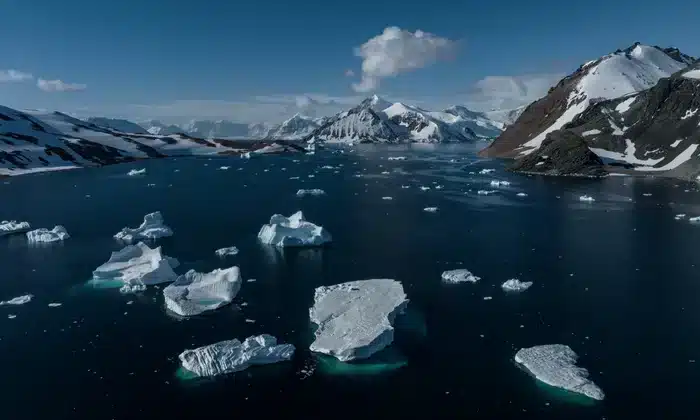Antarctic Current Weakens, Threatening Global Climate

Recent research reveals that the Antarctic Circumpolar Current (ACC), the world’s most powerful ocean current, is losing strength, with projections indicating a potential slowdown of up to 20 percent by 2050. This alarming trend is largely attributed to the increasing influx of cold meltwater from Antarctica, which is altering ocean dynamics. The implications of this shift could be profound, affecting sea levels, global temperatures, and marine ecosystems across the planet.
Findings from Climate Modelling
A groundbreaking study published in Environmental Research Letters highlights the impact of Antarctic ice melt on the ACC. Led by Bishakhdatta Gayen, a fluid mechanist at the University of Melbourne, the research team utilized one of Australia’s most advanced climate simulators to analyze the interactions between the Antarctic ice sheet and surrounding ocean waters. Their findings indicate that the introduction of fresh, cold meltwater is significantly weakening the current. This occurs because the meltwater alters the density of the ocean, which in turn reduces convection between surface and deep waters.
The study underscores the importance of understanding these interactions, as they play a critical role in regulating global ocean circulation. The researchers emphasize that the changes in the ACC could lead to unforeseen consequences, necessitating further investigation into the long-term effects of Antarctic ice melt on ocean dynamics.
Consequences of a Slower Current
The anticipated slowdown of the ACC poses serious risks to global ocean circulation. As convection weakens, warm water may penetrate deeper into Antarctic waters, potentially accelerating ice melt and contributing to rising sea levels. Additionally, the weakening current could create pathways for invasive species to reach the Antarctic coastline, disrupting the delicate balance of the region’s ecosystems. In an interview with Live Science, Gayen likened the current’s behavior to a “merry-go-round,” suggesting that a slower current could facilitate the faster migration of marine organisms toward Antarctica. This shift in marine life patterns could have cascading effects on biodiversity and food webs. As scientists continue to monitor these changes, it becomes increasingly clear that the repercussions of a weakening ACC will extend far beyond Antarctica, influencing ocean circulation patterns worldwide.
Observer Voice is the one stop site for National, International news, Sports, Editor’s Choice, Art/culture contents, Quotes and much more. We also cover historical contents. Historical contents includes World History, Indian History, and what happened today. The website also covers Entertainment across the India and World.

